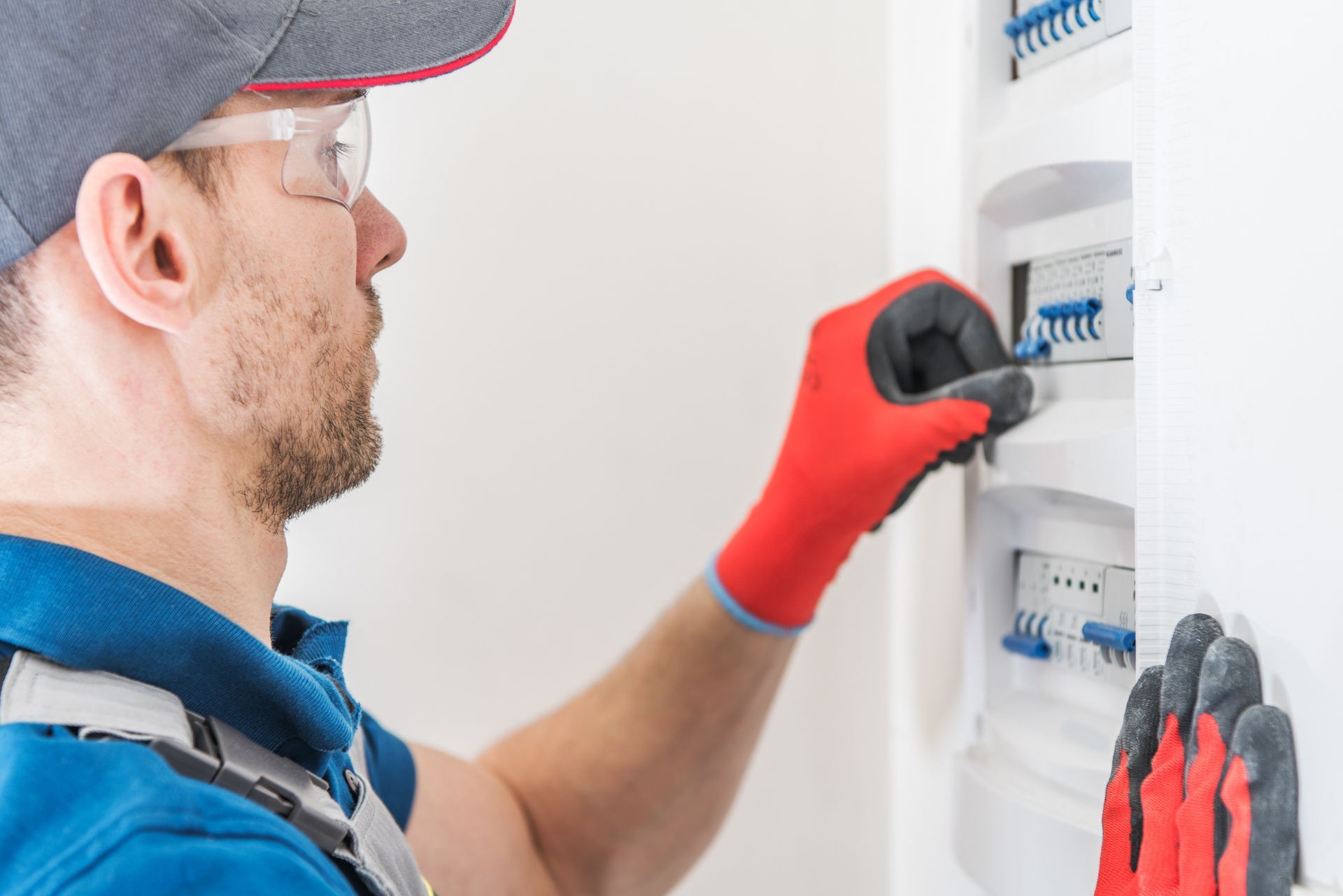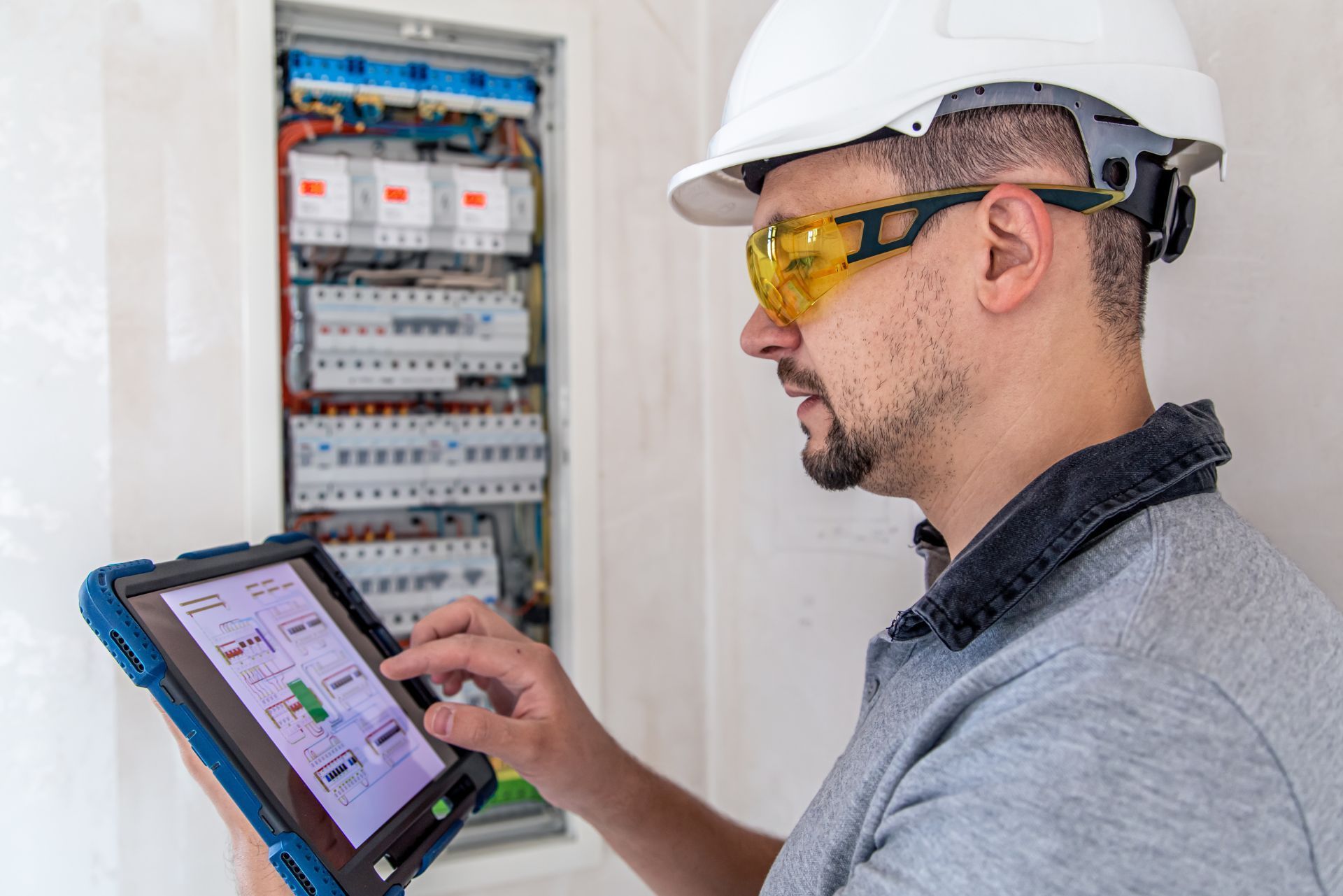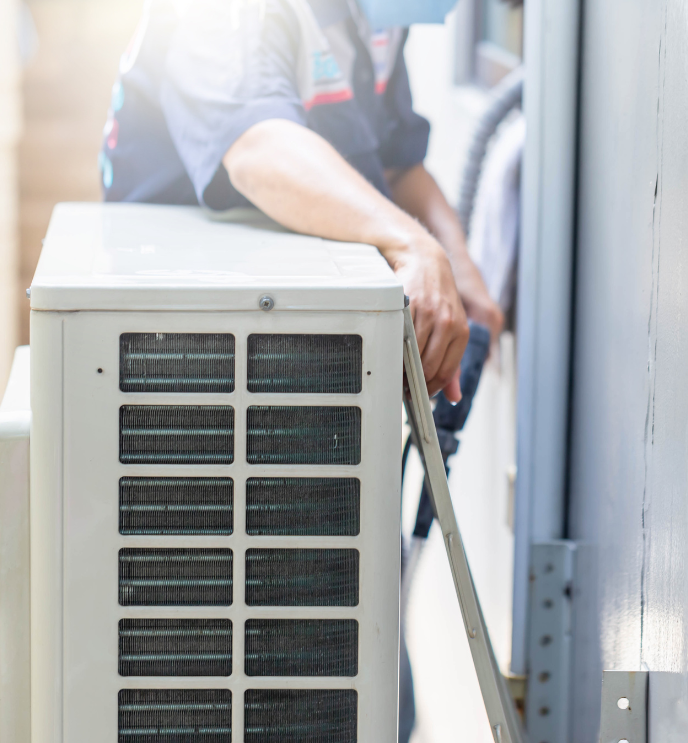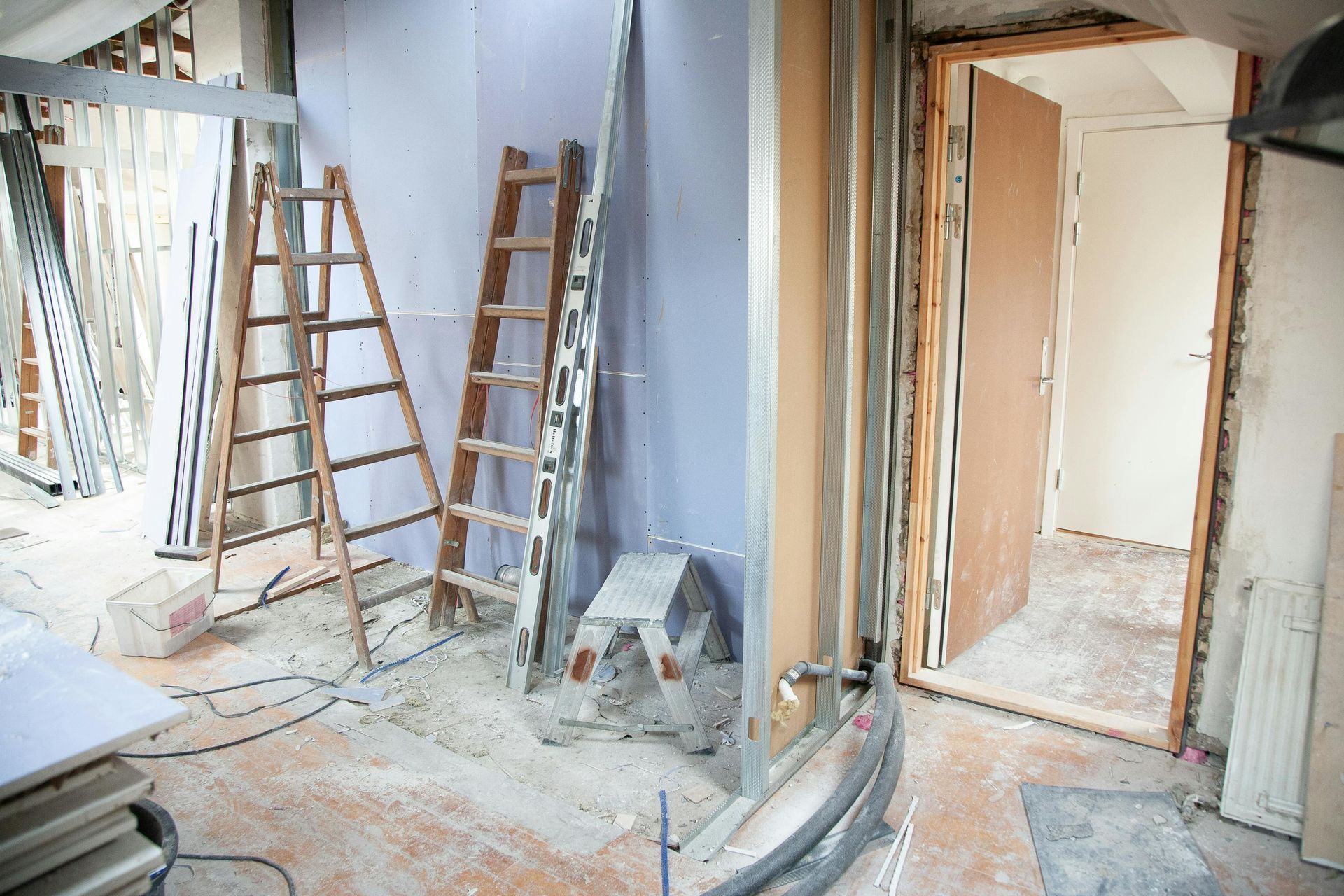Types of Contractors We Serve
Jonathan Behr
Owner of Contractor Insurance Pros by Behr Insurance Services
Index
Contact Us
Phone
Location
Simi Valley, CA 93065
The Woodlands, TX 77382
Katy, TX 77494
In an era where technology continues to evolve at a rapid pace, the integration of smart home systems has become a common trend among homeowners. With this shift comes the need for specialized services, particularly from electricians who are well-versed in smart home technologies. However, as the demand for these services grows, so does the importance of having the right insurance coverage. This article explores everything you need to know about smart home electrician insurance, ensuring that both electricians and homeowners are well-informed.
Understanding Smart Home Technologies
Before delving into the specifics of insurance, it is essential to understand what smart home technologies entail. Smart homes utilize devices that connect to the internet, allowing homeowners to control various aspects of their home remotely. This includes lighting, heating, security systems, and even appliances. The integration of these technologies not only enhances convenience but also promotes energy efficiency, as many smart devices can optimize their performance based on user habits and preferences.
The Rise of Smart Homes
The rise of smart homes can be attributed to advancements in technology and the increasing desire for convenience and efficiency. Homeowners are now able to manage their homes from their smartphones, leading to a more integrated living experience. This trend has created a niche market for electricians who specialize in installing and maintaining these systems. Moreover, as more consumers become aware of the benefits of smart home technologies, the demand for these installations continues to grow, pushing manufacturers to innovate and create even more sophisticated devices that can seamlessly integrate into everyday life.
Common Smart Home Devices
Some of the most popular smart home devices include smart thermostats, security cameras, smart locks, and lighting systems. Electricians who work with these devices need to be knowledgeable about their installation and troubleshooting. This expertise is crucial, as improper installation can lead to malfunctions or even safety hazards. Additionally, the proliferation of voice-activated assistants, such as Google Assistant and Amazon Alexa, has further expanded the capabilities of smart home systems, allowing users to control their devices through simple voice commands. This hands-free approach not only enhances user experience but also makes smart home technology accessible to a wider audience, including those who may not be as tech-savvy.

The Importance of Insurance for Electricians
Insurance is a critical component of any electrician’s business, especially for those working in the smart home sector. The nature of electrical work inherently involves risks, and having the right insurance can protect electricians from various liabilities. In an industry where safety is paramount, insurance not only safeguards the electrician's financial interests but also enhances their credibility with clients. A well-insured electrician can instill confidence in potential customers, leading to more business opportunities and a stronger reputation in the marketplace.
Types of Risks Faced by Electricians
Electricians face numerous risks, including property damage, bodily injury, and equipment theft. When working with smart home technologies, the complexity of systems can introduce additional risks, such as data breaches or system failures. These risks highlight the need for comprehensive insurance coverage. For instance, if an electrician accidentally damages a client's property while installing a smart thermostat, liability insurance can cover the repair costs, preventing financial strain on the electrician's business. Additionally, as smart home devices become more interconnected, the potential for cyber threats increases, making cyber liability insurance an essential consideration for electricians who handle sensitive customer data.
Legal Requirements
Many states require electricians to carry specific types of insurance to operate legally. This often includes general liability insurance and workers' compensation. Understanding these legal requirements is crucial for electricians to maintain compliance and protect their businesses. Failure to obtain the necessary insurance can result in hefty fines and even the suspension of an electrician's license. Furthermore, some clients may require proof of insurance before hiring an electrician, making it not just a legal obligation but also a competitive advantage. Electricians should regularly review their insurance policies to ensure they meet both state regulations and the evolving demands of the industry, particularly as new technologies emerge and the risks associated with them change.
Types of Insurance Coverage for Smart Home Electricians
Smart home electricians should consider various types of insurance coverage to protect themselves and their businesses. Each type of coverage serves a specific purpose and addresses different risks associated with their work.
General Liability Insurance
General liability insurance is essential for any contractor, including electricians. This coverage protects against claims of bodily injury or property damage that may occur during the course of work. For instance, if a homeowner trips over equipment left on-site and sustains an injury, general liability insurance can cover medical expenses and legal fees. Additionally, this insurance can also protect against claims related to advertising injuries, such as copyright infringement or defamation, which can be particularly relevant for electricians who market their services online or through social media. Having this safety net allows electricians to focus on their work without the constant worry of potential lawsuits looming over them.
Professional Liability Insurance
Professional liability insurance, also known as errors and omissions insurance, is particularly important for electricians working with smart home technologies. This coverage protects against claims of negligence or failure to perform services as promised. If a smart home system malfunctions due to improper installation, this insurance can help cover the costs associated with legal defense and settlements. Furthermore, as smart home technology evolves, electricians may find themselves facing increasingly complex systems and customer expectations. This insurance not only provides financial protection but also enhances credibility, as clients often feel more secure knowing their electrician is insured against potential mishaps.
Workers' Compensation Insurance
For electricians with employees, workers' compensation insurance is a legal requirement in most states. This insurance provides coverage for medical expenses and lost wages for employees who are injured on the job. It is crucial for protecting both the business and its workers, ensuring that everyone is taken care of in case of an accident. Moreover, having workers' compensation insurance can foster a safer work environment, as it encourages employers to implement safety protocols and training programs to minimize risks. In the fast-paced world of smart home installations, where the use of advanced tools and technologies is common, prioritizing safety can lead to fewer incidents and a more productive workforce.
Commercial Auto Insurance
For electricians who use vehicles to transport tools and equipment to job sites, commercial auto insurance is another vital coverage to consider. This insurance protects against damages resulting from accidents involving company vehicles, whether it's a minor fender bender or a more serious collision. In the case of an accident while driving to a job site, commercial auto insurance can cover repair costs, medical expenses, and liability claims. Additionally, this type of insurance can provide coverage for tools and equipment that may be stolen from the vehicle, which is particularly important for electricians who rely heavily on specialized tools to perform their work efficiently. By securing commercial auto insurance, electricians can ensure that their operations remain uninterrupted even in the event of an unforeseen incident on the road.
Factors Influencing Insurance Costs
The cost of insurance for smart home electricians can vary significantly based on several factors. Understanding these factors can help electricians find the most suitable and affordable coverage for their needs.
Business Size and Revenue
The size of the business and its annual revenue are primary factors influencing insurance costs. Larger businesses with higher revenues typically face higher premiums due to the increased risk associated with larger operations. Conversely, smaller businesses may benefit from lower premiums, but they still need adequate coverage to protect against potential liabilities. Additionally, the scale of operations can affect not only the cost but also the type of coverage required. For instance, a larger firm might need to consider additional policies such as workers' compensation and commercial auto insurance, which can further impact overall expenses.
Type of Work Performed
The specific types of services offered also impact insurance costs. Electricians specializing in complex smart home installations may face higher premiums due to the increased risk associated with these systems. On the other hand, those who primarily perform basic electrical work may find their insurance costs to be lower. Moreover, the technology involved in smart home systems is continually evolving, which can introduce new risks and liabilities. Electricians must stay updated on the latest technologies and safety standards to ensure they are adequately covered, which may also influence their insurance needs and costs.
Claims History
Insurance providers often assess an electrician's claims history when determining premiums. A history of frequent claims can lead to higher rates, as insurers see this as an indication of higher risk. Maintaining a clean claims history can help electricians secure more favorable insurance rates. Furthermore, electricians can take proactive measures to minimize risks, such as implementing safety training programs for employees and adhering to best practices in their work. By demonstrating a commitment to safety and risk management, electricians may not only reduce the likelihood of claims but also potentially negotiate better terms with their insurance providers.
Choosing the Right Insurance Provider
Selecting the right insurance provider is a crucial step for smart home electricians. The right provider will offer comprehensive coverage tailored to the specific needs of the business while also providing excellent customer service.
Researching Insurance Providers
When researching insurance providers, electricians should look for companies that specialize in coverage for contractors and tradespeople. These providers will have a better understanding of the unique risks associated with electrical work and can offer tailored solutions. Reading reviews and seeking recommendations from other electricians can also provide valuable insights. Additionally, electricians should consider the financial stability of the insurance company, as this can impact their ability to pay claims in the future. Checking ratings from independent agencies can offer a clear picture of a provider's reliability and reputation in the industry.
Comparing Policies
Once potential providers have been identified, it is essential to compare policies. Electricians should look for coverage limits, deductibles, and any exclusions that may apply. A thorough comparison will help ensure that the chosen policy meets the specific needs of the business without unnecessary gaps in coverage. Furthermore, it is beneficial to evaluate additional coverage options, such as equipment breakdown or professional liability insurance, which can provide further protection against unforeseen circumstances. Understanding the nuances of each policy can empower electricians to make informed decisions that align with their operational risks and budgetary constraints.
Understanding Policy Terms
Before signing any insurance policy, electricians must take the time to understand the terms and conditions. This includes knowing what is covered, what is excluded, and any obligations that must be met to maintain coverage. If there are any uncertainties, it is advisable to ask questions or seek clarification from the insurance provider. Moreover, electricians should be aware of the claims process outlined in the policy, as knowing how to file a claim efficiently can save valuable time and reduce stress during challenging situations. Familiarizing oneself with the policy's renewal terms and potential changes in premiums can also help electricians plan for the future and ensure continuous coverage without unexpected interruptions.

Claims Process for Electricians
Understanding the claims process is vital for electricians to ensure they can effectively navigate any potential issues that arise. Knowing how to file a claim and what information is needed can make the process smoother and less stressful. The stakes are high in this profession, as even minor incidents can lead to significant financial repercussions. Therefore, being well-versed in the claims process not only protects the electrician's business but also enhances their reputation in the industry.
Steps to File a Claim
Filing a claim typically involves several steps. First, the electrician should notify their insurance provider as soon as an incident occurs. This can often be done via phone or online. Next, the electrician will need to provide relevant details about the incident, including any documentation or evidence that supports the claim. It’s also advisable to keep a detailed log of communications with the insurance company, noting dates, times, and the names of representatives spoken to. This log can serve as an invaluable reference if any disputes arise during the claims process.
Documentation Required
Documentation is crucial in the claims process. Electricians should keep detailed records of any incidents, including photographs, witness statements, and invoices. This information can help substantiate the claim and expedite the review process. Additionally, maintaining a comprehensive portfolio of past projects, including safety protocols followed and any certifications obtained, can bolster an electrician's credibility when filing a claim. These records not only support the current claim but also demonstrate a commitment to professionalism and safety, which can be beneficial in future dealings with insurers.
Understanding Claim Denials
In some cases, claims may be denied. Understanding the reasons for a denial can help electricians address any issues and improve future claims. Common reasons for denial include insufficient documentation, policy exclusions, or failure to meet reporting timelines. If a claim is denied, electricians have the right to appeal the decision and provide additional information for reconsideration. It’s also beneficial to familiarize oneself with the specific terms of the insurance policy, as this knowledge can prevent misunderstandings and help electricians tailor their documentation to meet the insurer's requirements. Engaging with a claims adjuster can also provide insights into the claims process and clarify any uncertainties regarding policy coverage.
Best Practices for Smart Home Electricians
To minimize risks and ensure a successful business, smart home electricians should adopt best practices that enhance their operations and protect their clients.
Staying Updated on Technology
As smart home technologies continue to evolve, electricians must stay informed about the latest trends and advancements. This can involve attending workshops, obtaining certifications, or participating in industry conferences. Staying updated not only enhances skills but also builds credibility with clients.
Implementing Safety Protocols
Safety should always be a priority for electricians. Implementing safety protocols, such as wearing appropriate personal protective equipment and following safety guidelines, can help prevent accidents and injuries. Additionally, providing safety training for employees can further enhance workplace safety.
Building Strong Client Relationships
Building strong relationships with clients is essential for long-term success. Clear communication, transparency about services, and a commitment to quality work can help establish trust. Satisfied clients are more likely to refer services to others, contributing to business growth.
Conclusion
Smart home electrician insurance is a vital aspect of operating a successful business in the evolving landscape of smart home technologies. By understanding the types of coverage available, the factors influencing insurance costs, and the claims process, electricians can make informed decisions that protect their businesses and their clients. As the demand for smart home services continues to grow, having the right insurance in place will ensure that electricians can focus on delivering exceptional service without the burden of financial risk.
Areas we serve









